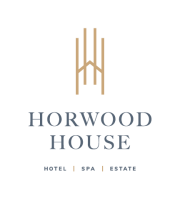- By Buckinghamshire Business First
- 4 December, 2013
Share by email
Why is it that these days the biggest success stories in farming often come from the smallest farms?
 It’s probably the ingenuity and originality of today’s farmers that holds the answer.
It’s probably the ingenuity and originality of today’s farmers that holds the answer.
Drovers Hill Farm is a classic example of the “nouveau farm”. Driven by a love of farming and a practical need for an income, Mark and Nicola Knop purchased 65 acres of arable land in Saunderton. As both had attended agricultural college, farming was at the heart of any career choices they would make. But with up to £10,000 an acre being paid for some agricultural land, owning a farm not only represented a major investment but was also a bold step. But they took the step and Drovers Hill Organic Farm is now a leading producer of apple juice, lamb and quality pork products - all from only 65 acres.
Orchard View Farm in Little Meadle benefited from LEADER (a programme which gives out grants to farmers, foresters and community enterprises). The farm has just 27 acres is almost a small holding. The owners, James and Helen Mackellar, are taking farming very seriously and working their land incredibly hard, rearing pigs, turkeys, sheep and deer - all on the one site. They are now recognised as a leading manufacturer of local produce, including pies and sausages. They have won a string of awards and most recently won ‘Best Pork Pie’ as well as being voted ‘Best Rural Business’ at the prestigious Buckinghamshire Business Awards.
There are several other “micro” farms that are making a steady profit. These relative newcomers are keen to maximise the value of their products. This style of farming makes use of every inch of land, but more importantly, adds value to every element of production.
These small farms are vastly different from the traditional ones. The traditional farmer took his product to market, or animal to the abattoir and his job was done. The problem was that with the increasing costs of feed, fuel and land, he was just not making a profit. The new small, intensive farm with its high quality local produce is so very different. This new breed of farmer is different too - ”hybrid”, a real cross breed of farmer, food processer, butcher, marketing expert, customer service manager and accountant.
Will this new self reliant small farm be the future of farming, with land prices as they are, fertilizer and fuel costs high and with margins being squeezed? Or, as market demand for niche products grows, will the need for larger economies of scale put pressure on these small farms? Time will tell, but what we do know is that farming is changing and the demands on the farmer to diversify, add value, and become a marketing and customer focused executive are greater than ever.
Nick Phillips, LEADER Programme
For information on the programme, contact the LEADER team on 01494 568969.







